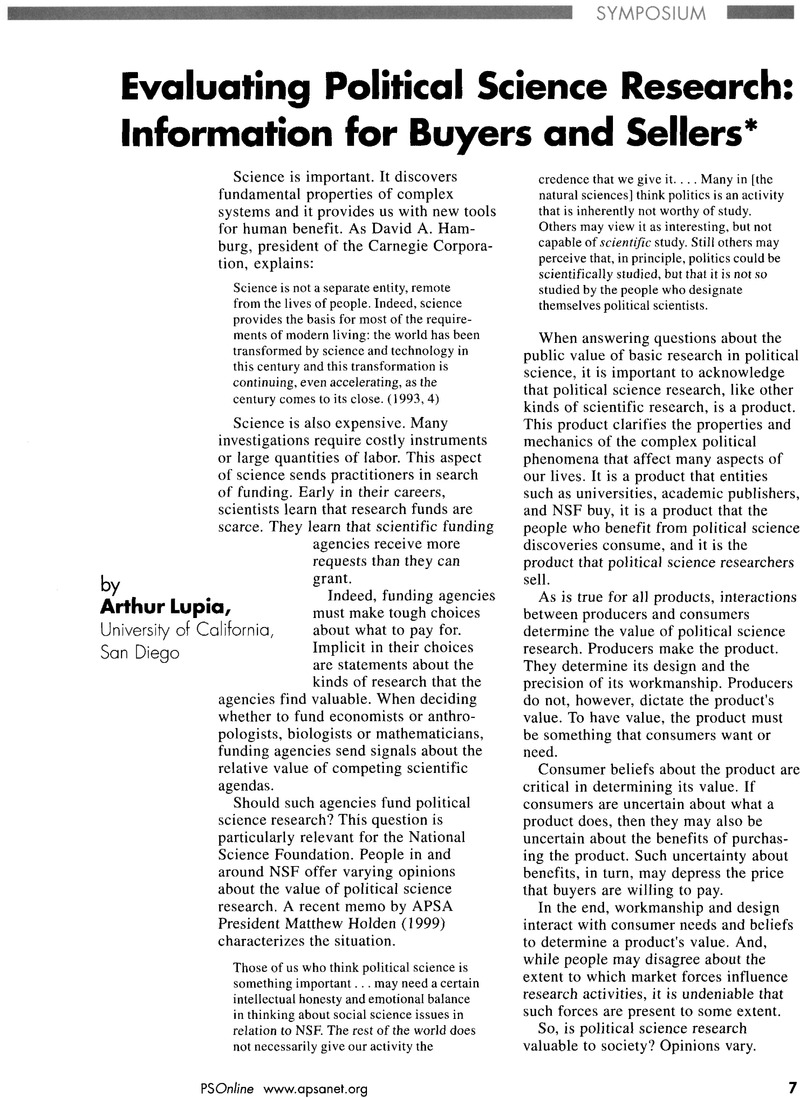Article contents
Evaluating Political Science Research: Information for Buyers and Sellers
Published online by Cambridge University Press: 02 September 2013
Abstract

- Type
- The Public Value of Political Research
- Information
- PS: Political Science & Politics , Volume 33 , Special Issue 1: The Public Value of Political Science Research , March 2000 , pp. 7 - 14
- Copyright
- Copyright © The American Political Science Association 2000
Footnotes
I thank Catherine E. Rudder and Robert J-P. Hauck for proposing the symposium and for assisting me in its assemblage. I thank Matthew Holden Jr. and Paul M. Sniderman for sage advice regarding the symposium. I also thank Gary W. Cox, Paul W. Drake, James N. Druckman, Elisabeth R. Gerber, Alan C. Houston, David A. Lake, Arend Lijphart, Arthur W. Lupia Sr., Mathew D. McCubbins, and Samuel L. Popkin for their comments on previous versions of this manuscript. However, I am solely responsible for the views expressed within.
References
- 2
- Cited by




